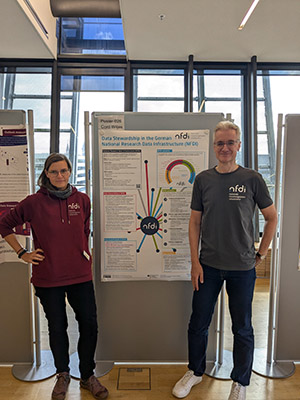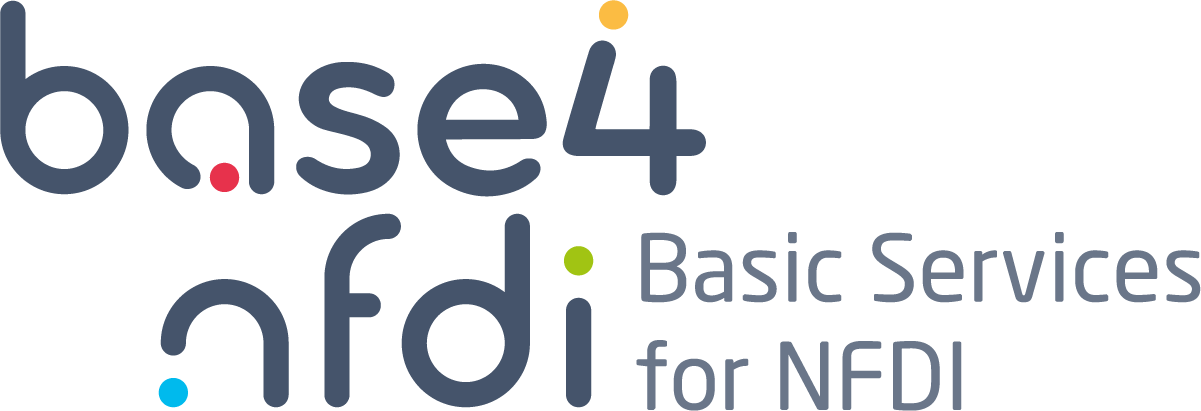
2024-10-01
How can the NFDI and various data competency and other short term projects work together to create value for the scientific community? A take-away metaphor from the panel of the Status Seminar of Data Competence projects nicely summarised it: NFDI can be described as an ocean liner - realising research data management across disciplines- and its success lies in the support of speed boats - representing data competencies - to support it and make it sail smoothly. There is much activity and investment in Germany in data centres, competence initiatives and scientific infrastructures at many levels.
The Base4NFDI team was present at two relevant events that reflected in their programmes critical activities in Germany for research data management (RDM).
- “Data Stewardship goes Germany”: : an RDM working group of German Technical Universities invited research data handling personnel to Aachen for the 3rd “Data Stewardship goes Germany” workshop. Over 100 people attended from across the German RDM spectrum and many initiatives, case studies and innovative approaches were presented. Base4NFDI took the opportunity to present a poster and discuss basic services with RDM professionals.
- Status Seminar “Data Competences in Science”: a meeting sponsored by the German ministry of education & science (BMBF) to bring together three different strands of funded projects representing data competence centres, data competence projects for young professionals in science, RDM at universities of applied science and DALIA - the knowledge graph project of the Data Literacy Alliance in NFDI Section EduTrain. In workshops, the different projects discussed parallels and synergies, matters of sustainability, communication and target groups (among others). The data competencies centres are now fully underway, on different levels, regional or thematic.
What these events mean for Base4NFDI
- Base4NFDI: There is much interest in ways to open up services to data competence centers: the demand is there and the offering from Base4NFDI services needs to be made clear as well as defining the resources needed to deploy these services.
- The NFDI could be the single entry point for all questions around research data management - a Helpdesk portal could support RDM professionals and researchers find the services and infrastructure they need from the wide landscape of offers from the different projects.
- Connect more with Universities of applied science in order to derive requirements and integrate them further into the NFDI - this would help them to benefit from the basic services and extend the services reach.
- Artificial Intelligence tools are becoming more prevalent in RDM practices, for example large data processing, effective analysis. The community needs to work on how to recommend these tools to researchers and NFDI and the centres should work together here.
- Build and utilise connections between the NFDI, Base4NFDI and the data competence projects when it comes to reaching target groups and creating awareness for available training material - for example provided by basic services.
And finally, all our initiatives are catalysts for excellent research data management and cross disciplinary research with the potential to drive cultural change in science. For the smooth “sailing of the ship” and for all to “come to the buffet” we have to show the Benefit for the wider scientific community. It is essential that we extract all these good outcomes and knowledge and engage and stimulate and inspire researchers. We need to harness all this good work and to move from the Islands to create lighthouses of success stories.

